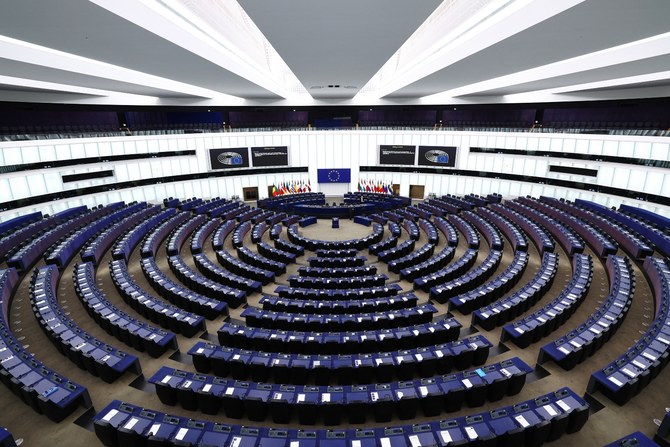Ranvir S. Nayar
Normally, few people in Europe care much about European Parliament elections – other than the members of the parliament, of course, whose political lives and livelihoods are often on the line. This year, however, all eyes are on the elections, which are still four months away but already making news.
Between June 6 and 9, more than 400 million voters in the 27 member countries of the EU will be able to choose 720 MEPs to represent them for the next five years. Voter interest in these elections has been in decline since the first poll in 1979, with turnout falling from almost 62 percent to just 42 percent in 2014, before rising back above 50 percent in 2019, when 50.62 percent of eligible voters cast their ballots. This year, there are several reasons why the European Parliament elections are attracting greater attention across the continent. Firstly, most political parties are taking them very seriously, as they coincide with, or are likely to set the scene and narratives for, almost a dozen national parliamentary, legislative or presidential elections scheduled for this year and next. An equally strong reason for the unusually keen interest in the elections is the unprecedented corruption scandal that emerged in the Parliament in December 2022, when a vice president and several other officials, including at least three other MEPs, were accused of taking bribes from Qatar in exchange for championing the nation’s agenda in Europe.
The scandal resulted in the arrest of key individuals named in the allegations and the matter is still under investigation. But it also revealed the extent to which MEPs might have been indulging in illegal, or at the very least immoral, behavior. A recent study, for example, found that at least one in four MEPs were involved in corruption cases or facing some other type of legal action or scandal. All of this has come in very handy for those parties and politicians, mainly on the far right of the political spectrum, that have long been opposed to the European Parliament, and even the wider EU. They accuse Brussels of being an opaque, hugely overpaid bureaucracy that is completely disconnected from the realities on the streets of member nations, and which controls hundreds of trillions of euros in funds that are used not for the greater good of the people, but for their own whims and fancies. They also accuse, with some justification, Brussels, and most notably the European Commission, of developing millions of rules and regulations, many of them extraordinarily complex and intrusive, that have resulted in European industries and economies becoming highly uncompetitive.
Little wonder, then, that recent polls suggest far-right and populist parties are set to make sizable gains in the European elections, while centrist parties, both center-left and center-right, are likely to lose votes. This is a trend we saw even during the previous election in 2019. In the view of these far-right and populist parties, it is not only the corruption scandals that are indicative of all that is wrong with the EU and its administrative body, the European Commission. They have long been critical of its stance on several political and policy decisions including, notably, immigration and the rules governing agriculture, sustainability and ecology. With inflation and the cost of living still rising sharply in several European nations, far-right politicians have found other sticks with which to beat the centrists, as well as leftists. They accuse bureaucrats in Brussels of adopting policies such as the Green Deal that have made life more expensive for Europeans, pushing up the prices of fuel, food and most other necessities of life.
As a result, almost 50 percent of the MEPs who will be elected in June might be outside of the super grand coalition of the three centrist groups. The elections might also result in the first downturn in votes for green parties in Europe, which have been on the ascendance for more than two decades. The word on the street is that many Europeans are unwilling to pay the price required to go green in their daily lives, and so the Green Deal adopted by the EU is falling prey to populist propaganda. This shift toward the hard-right, if it plays out in the upcoming European and national elections, is bound to put huge pressure on the EU, and in particular its sustainability agenda, which the right-wingers might try to unravel or push back from its goals. Even now, the EU is struggling to ensure it will meet its commitments on climate change. All of this also means that the heightened interest in the outcome of the European Parliament elections is not limited to Europe; they will be closely watched by thousands of ecology and sustainability activists as well.







